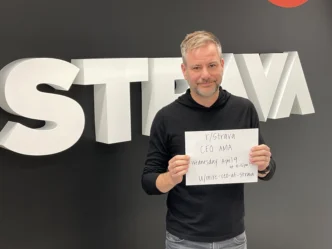Over the past few months, nearly every hard-tech and international marketplace startups founder spoken with has been working on a tariff response plan. And for good reason. With trade tensions rising again—particularly around China and Mexico—startups are reforecasting burn, reshaping their margins, renegotiating with suppliers, and mapping out new supply chains.
Many founders in Era Ventures’ portfolio and across our broader network anticipated this shift back in 2024. They spent the past year laying the groundwork for what’s now a very real scenario. Based on what we’ve observed, the smartest founders aren’t just reacting to tariff volatility—they’re using it to make their businesses stronger and more resilient.
Foresight, Not Fear: Paranoia Pays Off
Andrew Grove’s 1988 book Only The Paranoid Survive still rings true. Founders who were tuned in early to the political winds took preemptive steps to hedge against tariff risk. And today, they’re ahead of the curve.
Take, for example, the hard-tech founder who shifted manufacturing from China to Vietnam ahead of expected tariffs. Or the marketplace operator who expanded beyond a Mexico-only supply chain into Europe and North Africa to reduce single-country exposure. Others got ahead of customer concerns by being transparent about the potential cost pass-through—surprisingly, many buyers accepted it without pushback.
The takeaway? A little healthy paranoia isn’t a bad thing. And if you haven’t acted yet, now is the time.
Building a Margin of Safety Into Your Startup
Warren Buffett often says that the three most important words in investing are “margin of safety.” The same principle applies to startups—especially during moments of market disruption. The founders best weathering tariff impacts are the ones who already built buffers into their businesses.
Here’s how they’re doing it:
- Improving Unit Economics: One founder with a 30%+ gross margin weathered a full quarter of tariff-induced cost shocks. Another, operating on a slimmer margin, is reconsidering customer orders that could now become unprofitable. In robotics, a founder ran a full breakdown of cost of goods sold—AI infrastructure, remote ops, maintenance—and found ways to cut each line by 15–20%.
- Diversifying Markets: Instead of settling for squeezed margins, one ESG-focused founder developed a robust pipeline in Europe throughout 2024. That foresight is paying off, as European buyers now account for the majority of projected 2025 revenue.
- Securing Capital Reserves: Some founders locked in additional funding before tariff news broke—even if the terms weren’t ideal. That capital gave them breathing room to adapt and avoid tougher fundraising in an uncertain market.
These moves weren’t easy, but they’ve created breathing room—strategic slack—for founders to operate without panic.
Antifragility: Thriving Through the Crunch
Nassim Taleb’s concept of antifragility—becoming stronger under stress—perfectly describes what we’re seeing in the startup world right now. While incumbents are slow to adjust, early-stage startups can pivot faster, test new ideas, and restructure their operations in real-time.
If you’re navigating tariffs, take this as your moment. Optimize your cost structure. Rebuild your supply chain. Realign your customer messaging. Tariffs may be the external pressure—but how you respond could define your business’s trajectory.
The startups that treat this moment as a strategic test, not a temporary setback, will emerge more focused, more durable, and better positioned to capture outsized market share. Long-term winners aren’t made in calm waters—they’re forged in the crunch.













